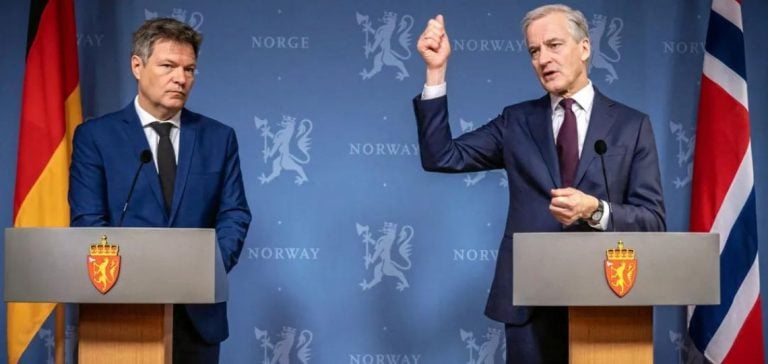Equinor has abandoned its plans to export blue hydrogen to Germany, a project that was to be based on an offshore pipeline linking Norway to Germany. The pipeline, designed to supply German power plants, was to mark a major step in Europe’s energy transition by supplying hydrogen produced from natural gas, with CO2 capture and storage.
However, Equinor justifies its decision to halt the project on the grounds that costs were too high, estimated at several billion euros, and that no firm commitments had been received from European buyers to guarantee the operation’s viability.
The pipeline represented a major part of this investment, with an announced cost of 3 billion euros.
Despite its potential, the hydrogen market in Europe remains embryonic, making it difficult to attract such a project without solid guarantees.
Equinor, which has already invested in the development of this technology, is faced with the economic realities of a market where demand is not yet sufficiently structured.
Strategic refocusing
This project was part of a wider cooperation between Equinor and RWE, aimed at reducing greenhouse gas emissions in Germany.
Signed in 2022, their partnership provided for the establishment of a complete supply chain to supply German power plants with blue hydrogen.
However, Equinor is now ending this phase of the project, although both companies remain committed to the development of hydrogen-ready power plants.
The German Ministry of Economic Affairs has confirmed that discussions are continuing with Norway, but with a new approach: converting Norwegian gas into blue hydrogen in the Netherlands, and storing the captured CO2 in Norway.
This change shows a strategic adjustment to adapt existing infrastructures while meeting the economic challenges faced by both countries.
Market-driven investments
Magnus Frantzen Eidsvold, spokesman for Equinor, points out that the company cannot justify such investments without an established market and long-term commitments.
Hydrogen production and the related infrastructure require a strong and constant demand to make the investments profitable.
At this stage, commitments from European buyers are not sufficient to secure the investments needed to launch this project on schedule.
Blue hydrogen, although a potential solution for decarbonizing the industrial and energy sectors, still faces high production costs, which are holding back its adoption.
The lack of political and financial support to create a solid framework is also slowing progress on major projects such as Equinor’s.
This has led the company to focus its efforts on more mature markets such as the UK and the Netherlands, where hydrogen projects look more promising in the short term.
Impact on Germany’s energy transition
In Germany, the development of hydrogen-ready power plants remains a priority for RWE.
However, the decision to abandon Norwegian supplies could slow down the country’s energy transition.
Indeed, the ability of these power plants to run on hydrogen depends not only on the availability of this resource, but also on the support mechanisms put in place by the government to encourage hydrogen production on a continental scale.
Germany’s target is to start producing electricity from hydrogen by 2030, but this will depend on the right policies being put in place and the creation of new financing mechanisms.
For the time being, RWE will have to look for other sources of hydrogen supply on the continent, while continuing to work with the government to strengthen the regulatory framework needed to develop these projects.
An industry still under construction
Hydrogen, often seen as a solution for decarbonizing heavy industry, remains a developing technology requiring massive investment.
Energy companies like Equinor are faced with the need to secure long-term partnerships and agreements to justify the costs of hydrogen production and distribution.
Without political support and stabilized demand, projects risk being postponed or even cancelled, as demonstrated by the example of this Norwegian project.
Europe’s energy transition will therefore depend on the ability of governments and companies to structure a competitive hydrogen market, while meeting the economic challenges currently weighing on this sector.






















